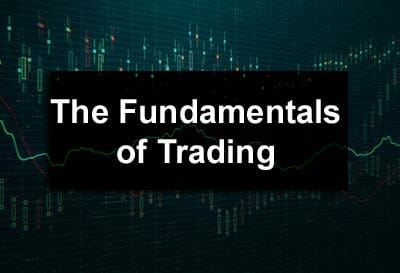Fundamentals of Stock Trading – Notes

What Will You Learn?
- The following topics are covered:
- Unit 1: Basics of Investment & Investment Environment: Fundamentals of Investment, Features of Investment, Investment environment. Principles of sound Investment. The Investment Decision Process. Modes of Investment – Direct Investing and Indirect Investing, Approaches to Investing – Active Investing and Passive Investing. Risk Return Trade Off. Types of Securities – Equity Shares, Bonds and Debentures, and Government Securities. Alternative Investments (Briefly) – Mutual Funds, Derivatives, Unit Linked Insurance Policy (ULIP), Exchange-traded funds (ETFs), Collective Investment Schemes (CIS), Real Estate Investment Trusts (REITs). Criteria for Evaluation of Investment Alternatives.
- Unit 2: Indian Securities Market: Securities Market – Capital Market and Money Market, Difference between Capital and Money Market, Primary and Secondary Market, Difference between Primary and Secondary Market. Over the Counter (OTC) and Exchange Traded market. Modes of offering Equity Shares – Initial Public Offering (IPO), Follow-on Public Offering (FPO), Difference between IPO and FPO, Difference between Offer for sale (OFS) and Public offer (IPO/FPO). Methods of IPO Pricing – Fixed Price Method and Book Building Method, The Book Building Process, Fixed Price method v/s Book building Method. Market Participants – Issuer of Securities, Investors, and Intermediaries. Role of Stock Exchange. Stock Exchanges in India. Securities (Stock) Indices – Broad Market Indices, Sectoral Indices and Thematic Indices.
- Unit 3: Online Security Trading: Trading Mechanism on Exchanges, Trading and Settlement at NSE – National Securities Clearing Corporation Limited (NSCCL), Clearing Mechanism, Clearing & Settlement (Equities). Online Trading – Introduction, Online Trading Mechanism. Online Real Time Price Quotations – Bid Price, Ask Price, Bid-Ask Spread, Tick Size, LTP, ATP. Circuit Breakers – Upper Circuit, Lower Circuit, NSE rules regarding Circuit Breaks. Price Bands, Rules regarding Price Bands on NSE. Electronic Order Book. Types of Orders – Market Order, Limit Order, Stop Loss Order, Stop Loss (Limit) Order, Stop Loss (Market) Order, After Market Order (AMO). Order Conditions – Price related conditions, Time related conditions, Quantity related conditions. Placing an Order, View/Modify/Cancel an Order.
- Unit 4: Investing in Mutual Funds: Concept of Mutual Funds, Mutual Funds are an Indirect Mode of Investment, Evolution of Mutual Funds in India, Structure of Mutual Funds (Sponsor, Board of Trustees, AMC and Custodian). Advantages of Investing in Mutual Funds, Limitations of Investing in Mutual Funds. Types of Mutual Fund Schemes – Open ended, Close ended, and Interval funds; Domestic Funds and Off-Shore funds; Growth funds, Income funds and Balanced funds; Equity Fund schemes, Debt fund schemes, Gilt Funds, Money Market Funds, Tax Saving or Equity Linked Savings Scheme (ELSS), Index schemes, Sectoral Funds, Ethical Funds, Load and No-Load Fund, Fund of Funds, Systematic Investment Plans (SIP), Systematic Withdrawal Plans (SWP), Systematic Transfer Plans (STP), and Exchange Traded Funds. Net Asset Value, Cost incurred and Return from Mutual funds, Types of Loads. Performance Evaluation of Mutual Funds. Factors affecting choice of Mutual funds. Mutual funds in India. CRISIL and their Rankings for mutual funds – Ranking Methodology and Usage of Mutual Fund Rankings.
Course Content
Full Notes
-
Access Complete Notes Now!